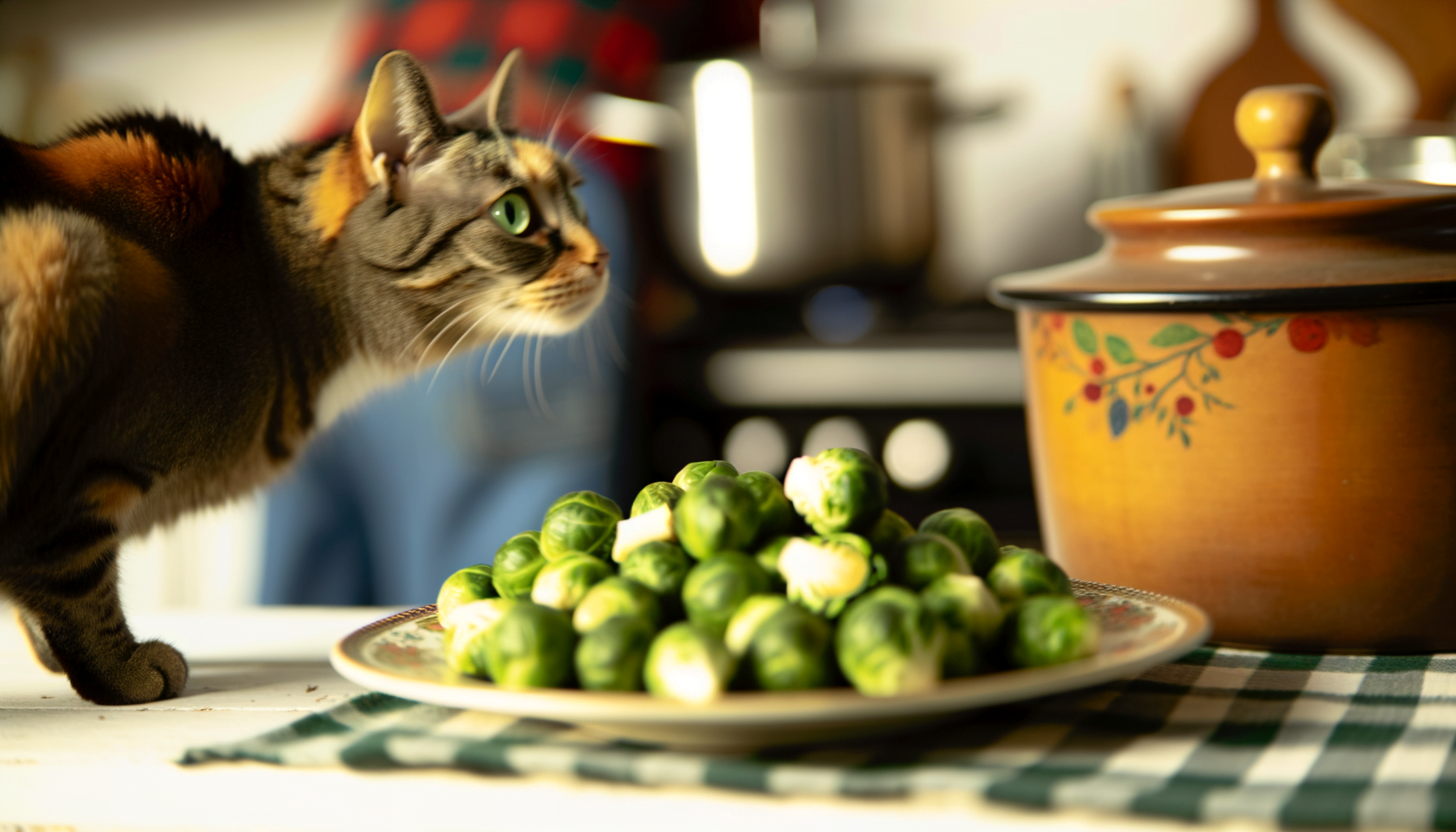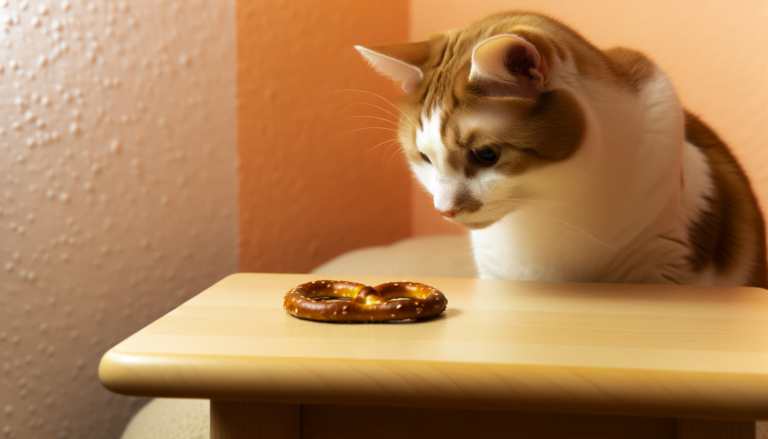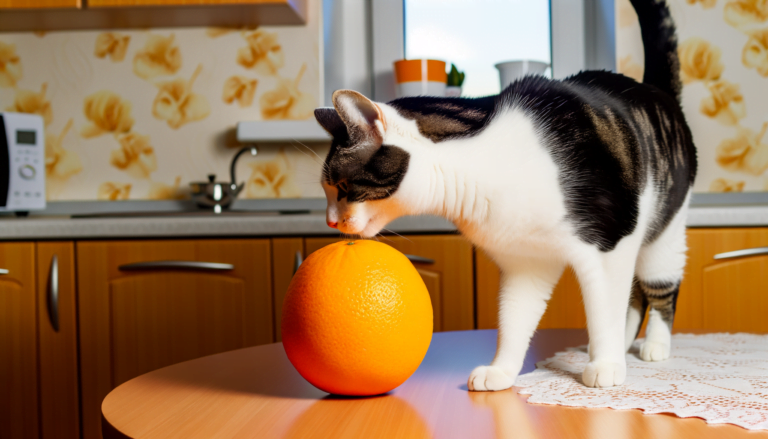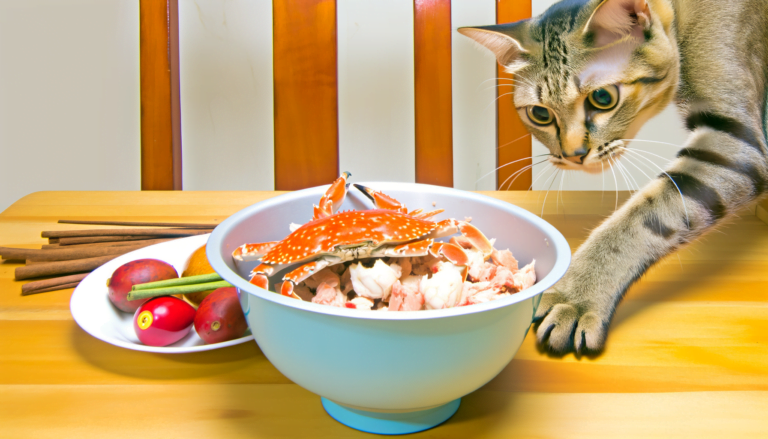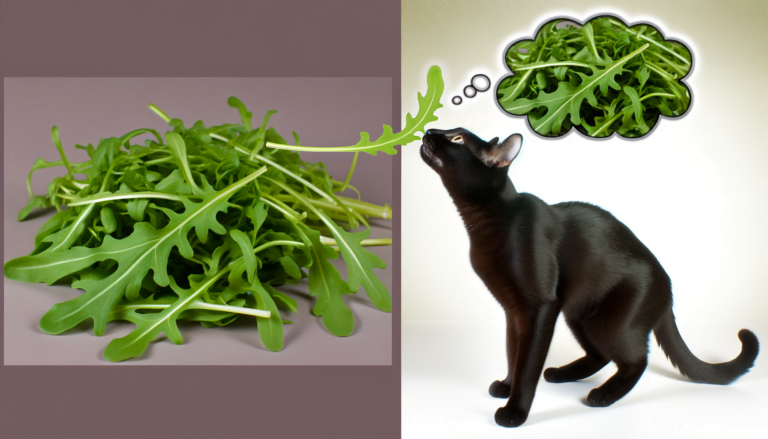The Feline Diet: Unmasking the Mystery of Cats and Brussel Sprouts
Cats can eat Brussels sprouts, although they may not find them as appealing as we do. These small green vegetables are safe and not toxic for our feline friends. Nevertheless, it’s important to bear in mind that Brussels sprouts should be given to cats in moderation and thoroughly cooked, without any added seasonings or spices, to prevent digestive problems. Predominantly, cats should have a diet rich in protein, and vegetables should only make up a small fraction of their overall meal plan.
Understanding a Cat’s Nutritional Needs
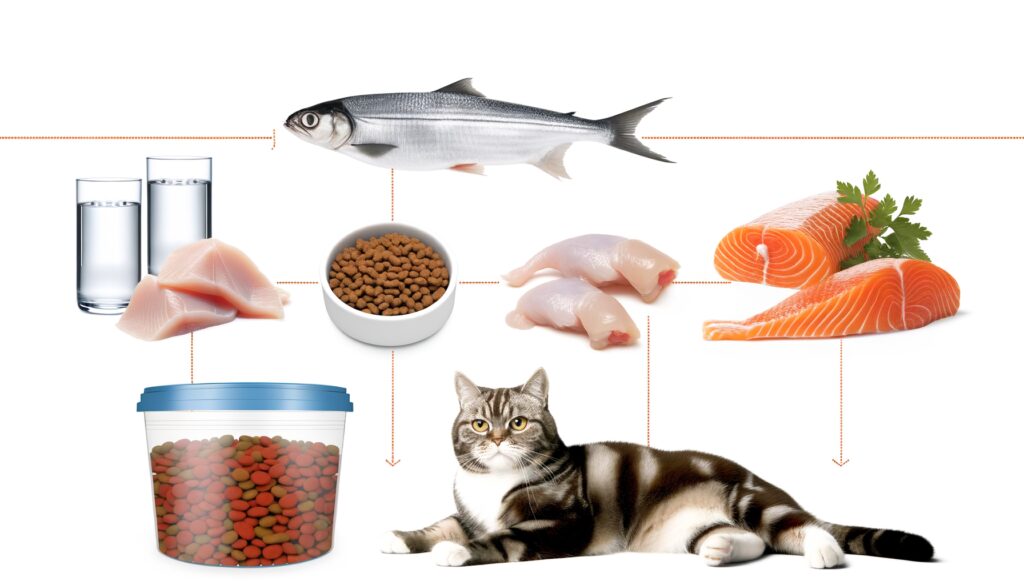
At the core of comprehending a feline’s meticulous diet is a clear grasp of their nutritional needs. As obligate carnivores, cats find their fundamental nourishment in animal protein. Essential nutrients such as taurine, arachidonic acid, and vitamin A, which they can’t produce naturally, are sourced from this dietary protein. Ensuring sufficient quantities of these nutrients in their diet is important to avoid detrimental health conditions.
The carnivorous nature of a cat’s dietary preferences is visible from their sharp canines and retractile claws, designed to capture and kill prey. Their low thirst drive is quenched by the high water content found in raw prey, hence, cats may not drink quite as much water as their canine counterparts. This unique characteristic is a key guide while formulating a cat’s diet, especially for house cats, which do not hunt for natural prey.
Undoubtedly, a balanced diet containing essential nutrients derived from high-quality sources is indispensable to ensure your cat’s optimal health. These include not only proteins but also the right balance of carbohydrates, fats, vitamins, and minerals. The presence of these nutrients in the right proportions prevents health issues and promotes overall physical and cognitive wellness in cats.
The Effects of Brussels Sprouts on Cats
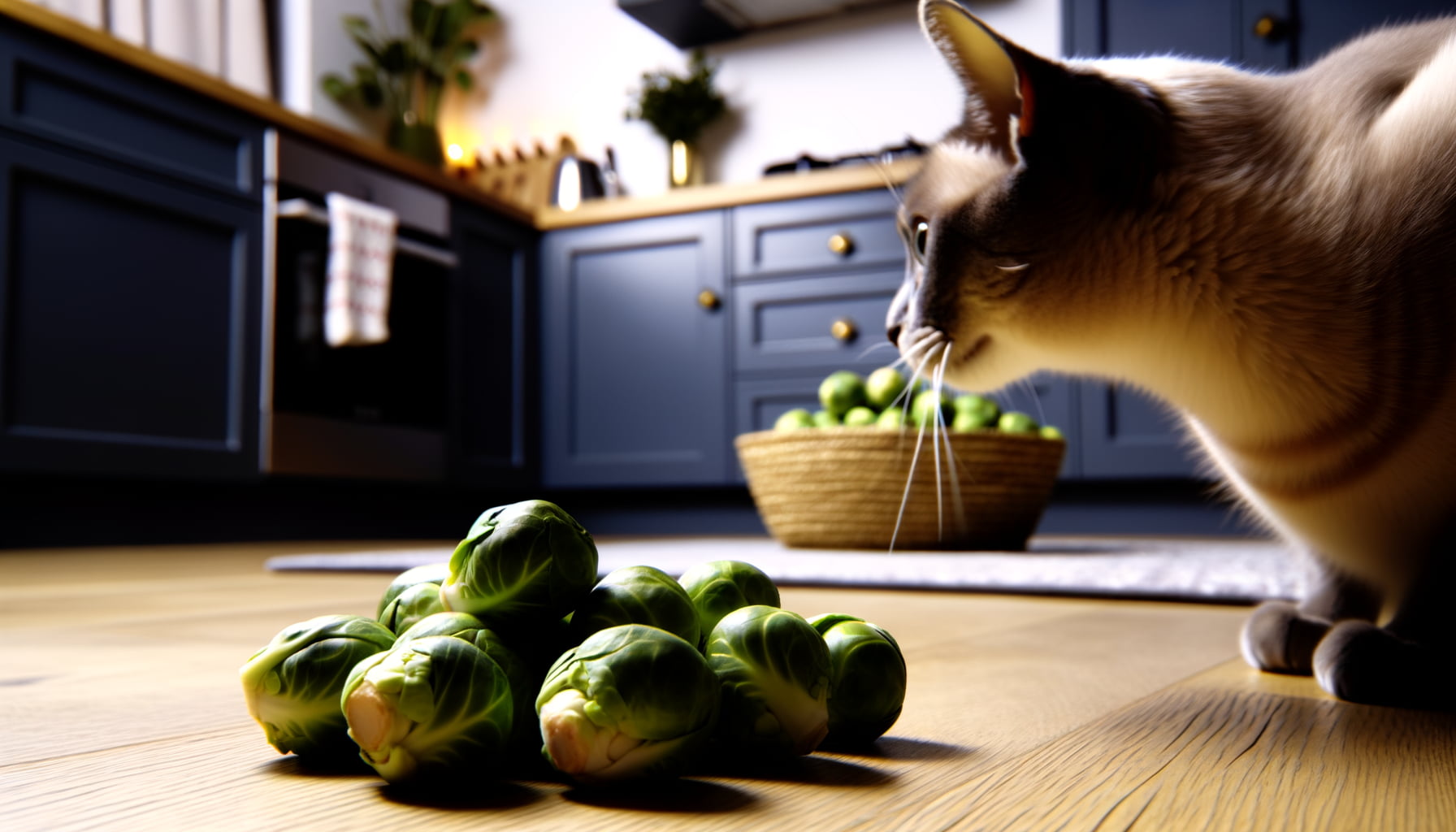
Brussels sprouts, a cruciferous vegetable loaded with healthful nutrients, can have distinctive effects on cats. While these leafy green vegetables are a rich source of nutrients like vitamins A and C for humans, felines operate on a different dietary scale, primarily as carnivores.
When consumed in moderation, Brussels sprouts aren’t harmful to cats. In fact, they may provide minor health benefits by adding some fiber to their diet, which aids digestion. Nevertheless, because their system isn’t designed to process large quantities of vegetables, excessive amounts can lead to gastrointestinal distress, causing symptoms such as bloating, gas, and diarrhea.
Furthermore, it is significant to note that Brussels sprouts must be properly prepared before feeding cats. Raw Brussels sprouts can be hard to digest, even for humans, so they should be cooked before feeding them to your feline friend to make digestion easier. However, they should be served plain, with no added seasonings or sauces that could potentially harm the cat.
Safe Vegetables for Your Feline Friend
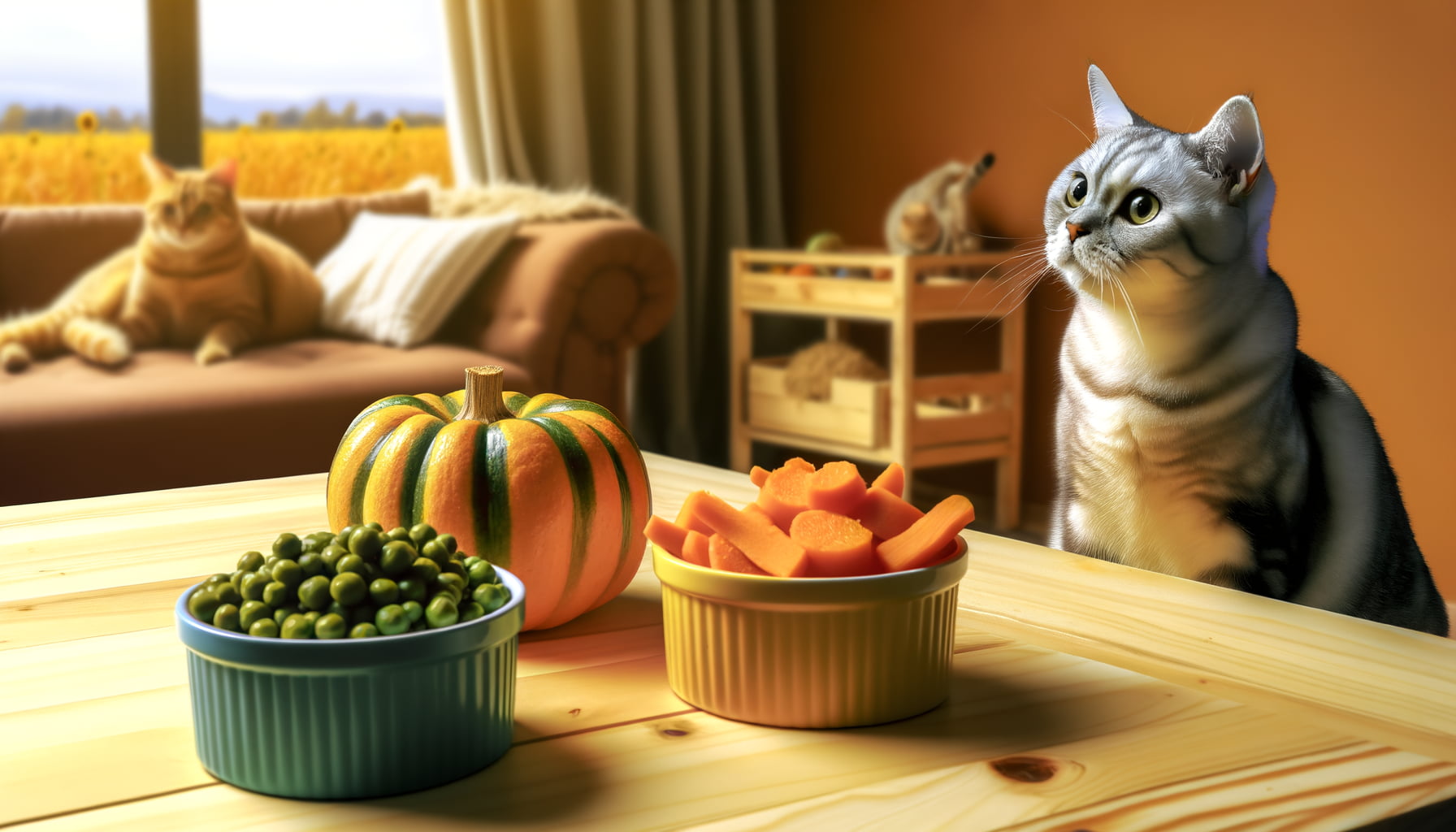
When it comes to enhancing your cat’s diet with plant-based foods, various veggies prove safe and beneficial for your feline companion. Peas, beans, carrots, broccoli, and spinach can be used sparingly and cooked thoroughly to prevent any digestive issues. These measure low on the scale of perplexity yet offer enough burstiness to promote healthy digestion in your cat.
However, the majority of a cat’s diet should consist of animal-based proteins. This is essential since cats are obligate carnivores. While vegetables can provide additional nutrients, they should never constitute the primary component of a cat’s menu. Therefore, utilize veggies as occasional supplements rather than staple must-haves in your feline’s feeding routine.
Before introducing any new food into your cat’s diet, particularly vegetables, consultation with a veterinarian is advised. This ensures that the addition does not pose a threat to your cat’s health or disrupt its dietary balance. Each cat has unique dietary requirements, so personalized advice should be sought for every feline member of the family.
The Proper Way to Feed Brussels Sprouts to Cats
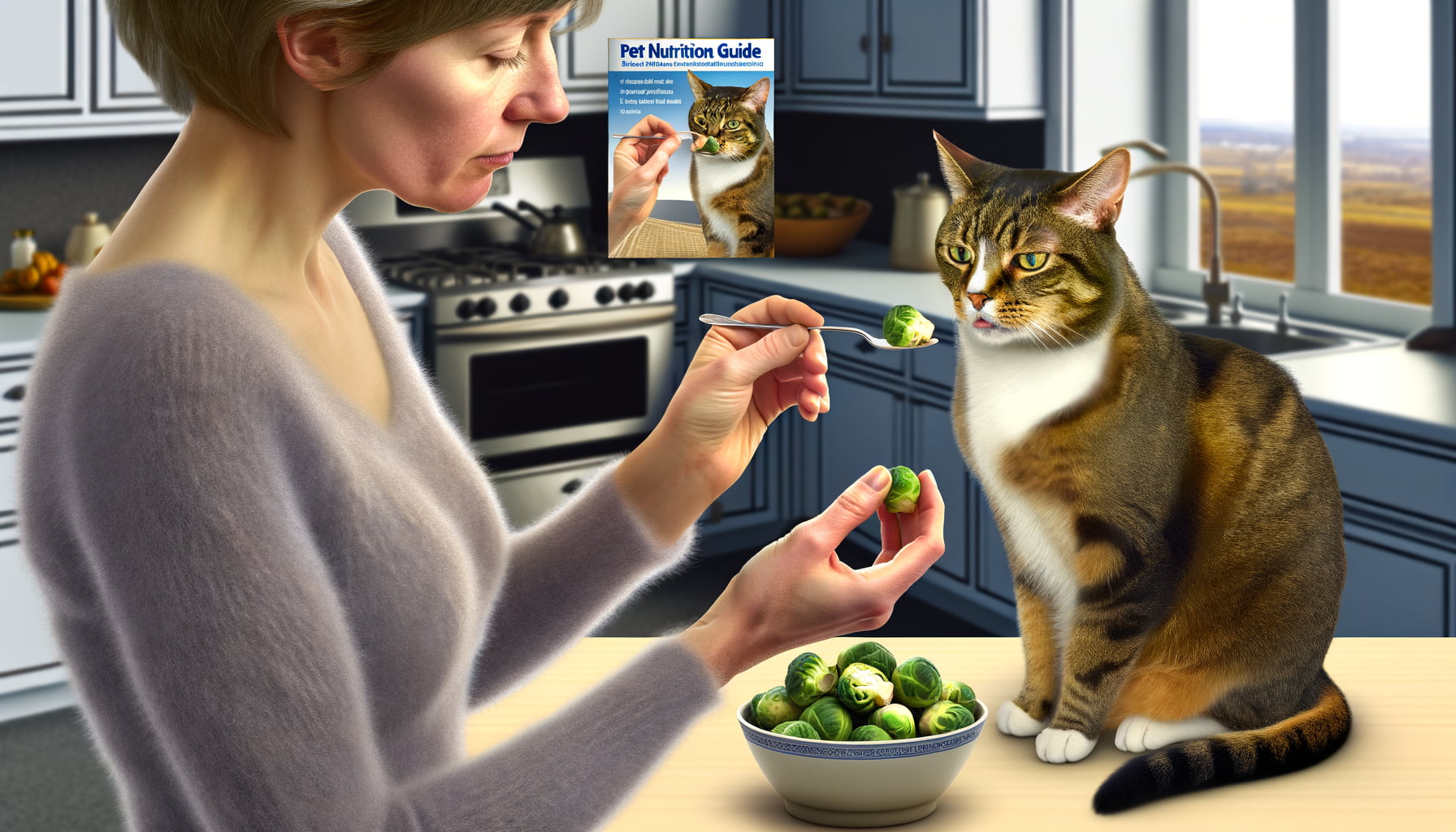
Feeding Brussels sprouts to cats requires careful preparation to make sure they’re safe. Cooking these vegetables can make them safer for feline consumption by breaking down any potentially harmful components. Start by steaming or boiling the sprouts until they are thoroughly cooked. Avoid adding any spices, butter, oil, or salt.
It’s important to chop the Brussels sprouts into small, manageable pieces. This can help to prevent choking and ensure safer eating. Offer these pieces to your cat as a treat, in moderation. Remember, even cats who enjoy Brussels sprouts should not consume them in large amounts as it can disturb their digestive system.
Introduce any new food, including Brussels sprouts, slowly into your cat’s diet. If your cat shows signs of gastrointestinal upset or changes in behavior after consuming these sprouts, consult a veterinarian. The primary diet of cats should always be high-quality cat food which is specifically formulated to meet their nutritional needs.
Conclusion
As we unmask the mystery of cats and brussel sprouts, one thing becomes clear – felines have unique dietary preferences that may surprise their owners. Whether they enjoy this cruciferous vegetable or not, understanding their tastes can help provide a well-rounded diet for our beloved pets.
So, next time you see your cat snubbing a brussel sprout, remember that their dietary choices are as unique as their personalities. Embrace the mystery, experiment with their food options, and always prioritize their health and happiness.
